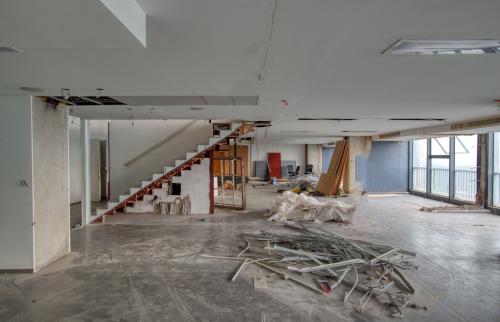Akinwumi Adesina takes office as president of the African Development Bank
Donald Kaberuka completed his second (and final) term as the African Development Bank’s (AfDB) president on Monday after 10 years of service at the continent’s leading financial institution. Reflecting on his time in office, he elaborated on the bank’s role in supporting regional economies survive the 2008 financial crisis and spoke about his fight for the economic transformation of the continent. The following day, former Nigerian Agriculture Minister Akinwumi Adesina took the oath of office as the eighth president of the AfDB at a ceremony in Abidjan, Côte d’Ivoire. In his remarks, Adesina emphasized the importance of tackling chronic power shortages and developing the private sector to drive industrialization. Adesina announced his focus on inclusive growth and plans to encourage agricultural reforms to boost productivity in that sector. He warned of global risks such as volatilities in the Chinese economy and suggested that regional economies should consider setting up of sovereign wealth funds to establish fiscal buffers to mitigate these risks.
Continued power shortages trouble the Zambian economy
This week, following a drop in water levels, Zambia increased cuts in electricity generation from hydropower stations at Kariba Dam. As a second consecutive year of low rainfall looms, these power cuts are likely to intensify, and there is a risk that Zesco, Zambia’s largest power producer, may have to disrupt electricity supplies to copper mines, which could be detrimental to the economy. Copper is Zambia’s key commodity, earning 70 percent of nation’s export revenue. With copper prices already nearing their six-year lows and existing power shortages forcing mining companies to curb electricity usage – the copper sector has already been facing serious challenges. The depreciation of the Zambian kwacha by 35 percent against the dollar this year hasn’t helped the sector either, and the falling copper revenue has strained the government’s budget. The finance minister and the central bank governor are, however, against intervention in the foreign exchange markets due to preference for a flexible exchange rate and insufficient reserves to permit substantial intervention.
Nigerian President Muhammadu Buhari’s first 100 days in office gets a mixed report
As Nigerian President Muhammadu Buhari reaches the milestone of his first 100 days in office on Saturday, September 5, analysts are already reflecting on his initial efforts as president and assessing how they measure up against his stated agenda for Nigeria.
In terms of tackling Boko Haram, analysts have applauded Buhari for having taken several noteworthy steps, including promoting a regional offensive, moving the military headquarters to Maiduguri, and, in August, elevated new officers into senior positions in the military with an aim to defeat Boko Haram by November. However, Boko Haram has not scaled back its assaults and still carries out frequent attacks in Nigeria’s northeast and neighboring countries. The BBC reports that it is even attempting to expand its terrorist network to Lagos.
On another front, Buhari has been working to root out corruption by honing in on the country’s notoriously opaque oil sector. In early August, he fired the board of the country’s state-owned oil firm, the Nigerian National Petroleum Corporation (NNPC) and sought U.S. assistance in identifying major actors involved in oil theft. This week, a major illegal bunkering site was uncovered, and the NNPC proposed a plan to eliminate oil theft in eight months, which includes the use of drones to track ships’ movements in the region.
However, some observers have issued concerns that after more than three months in office, Buhari’s cabinet remains mostly empty. He has also yet to put forward a concrete economic plan or propose ideas to curb the national budget. Given Nigeria’s recent economic turmoil—including a volatile naira and huge drop in oil revenues—owing in part to China’s economic slowdown over the past few weeks, Nigerians are increasingly calling for such a plan, especially one to diversify away from oil and stimulate the employment-intensive services sector. By December, Buhari’s government will need to finalize a budget and push it through legislative committees for it to be adopted.
The Brookings Institution is committed to quality, independence, and impact.
We are supported by a diverse array of funders. In line with our values and policies, each Brookings publication represents the sole views of its author(s).




Commentary
Africa in the News: Adesina is new AfDB president, Zambia’s power woes deepen, and Buhari reaches 100-day benchmark
September 4, 2015